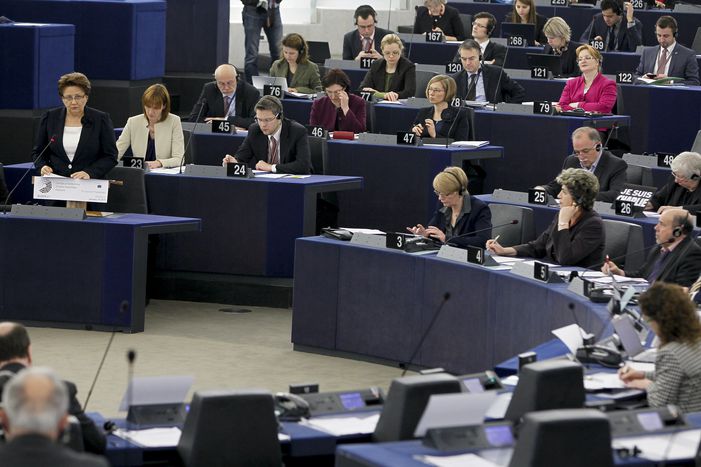
French presidency of the European Union: Furia Francese
Published on
On July 1st, France will succeed Slovenia for one of the last rotating presidencies of the EU. For this occasion, Paris will not do things by halves with 200 million Euro budget and a very busy schedule. The first announcements on the French priorities for the presidency of the EU date back from August when Nicolas Sarkozy held a speech to ambassadors gathered in Paris.
The schedule already seemed busy but other items have been added to the to-do list since then…
There are four big French priorities:
Immigration: France wishes to further a common policy on immigration. Its idea is based on three principles: “refusal of mass regularisations”, “harmonisation of asylum regimes” and “negotiation on readmission agreements”. Paris would also like to improve collaboration with so called Southern countries to elaborate a common solution.
The Europe of Defence: Nicolas Sarkozy is sailing on very dangerous waters here; he wishes to make the ESPD progress, a move not incompatible with NATO according to him. He also advocates a raise of European budgets in the area.
The fight against global warming: inspired by its “Grenelle de l’Environnement” (note: a grand scheme plan to solve environmental issues held earlier in September), France wishes to carry on with this effort at the European level. The subject of a European Grenelle has been touched on. Paris will also have to carry on negotiation in the post-Kyoto framework.
Energy: in direct link with the fight against global warming, this issue is twofold: it deals with security for the EU energy supplies but also with nuclear power. Second country in the world in terms of nuclear power, France wants to make its voice heard to bring its European partners to consider the atom as a credible source of energy for the future.
A few other themes have been added to the agenda:
Reform of the CAP in reaction to the increase in price of food products,
Mediterranean Union, this project launched by Sarkozy soon after he was elected is seen by some a way to prevent Turkey from being candidate to enter the EU,
Economic issues, in particular Euro matters and the way the ECB deal with them,
This long list can lead us to believe that these promises will not be respected. A presidency only lasts six months, thus permitting only a limited number of issues to be addressed. France will only be able to give incentives as it will not decide on its own and will have to give its seat to the Czech Republic in January 2009.
Managing international affairs
The period during which France will be in charge of the EU presidency is very important on the international plane; it will witness the Olympics in Beijing, the EU-China Summit, American elections, first contacts with the new Russian president and the likely management of the independence in Kosovo.
Also of importance, institutional reforms relating to the Lisbon treaty will be launched during the French presidency. Two months after the presidency ends, the European Parliament will have to stop its legislative work because of elections. The various following issues will have to be settled: a stable EU presidency, the coordination between the Commission and the High Representative for the Foreign Policy, setting up a common external service for diplomacy, the reduction of the number of commissioners and strengthening national parliaments.
To make this work more coherent, a coordination is necessary between France and it successor; the Czech Republic. A detail in this coordination may prove to be difficult; as France wishes to put the emphasis for its presidency on a “protection Europe”, Prague will choose to focus on a “Europe without borders”…
Jean-Sébastien Lefebvre



